
Henry Wheaton was an American lawyer, jurist and diplomat. He was the third reporter of decisions for the United States Supreme Court, the first U.S. minister to Denmark, and the second U.S. minister to Prussia.

Joseph Hiester was an American politician, who served as the fifth governor of Pennsylvania from 1820 to 1823. He was a member of the Hiester family political dynasty, and was a member of the Democratic-Republican Party.

Appletons' Cyclopædia of American Biography is a six-volume collection of biographies of notable people involved in the history of the New World. Published between 1887 and 1889, its unsigned articles were widely accepted as authoritative for several decades. Later the encyclopedia became notorious for including dozens of biographies of people who had never existed. In nearly all articles about the Cyclopædia various authors have erroneously spelled the title as 'Appleton's Cyclopædia of American Biography', placing the apostrophe in the wrong place.
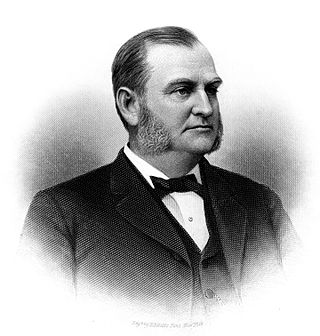
Oliver Ames was an American businessman, investor, philanthropist, and Republican politician who served as the 35th governor of Massachusetts from 1887 to 1890.

Henry Bowen Anthony was a United States newspaperman and political figure. He served as editor and was later part owner of the Providence Journal. He was the 21st Governor of Rhode Island, serving between 1849 and 1851 as a member of the Whig Party. Near the end of the 1850s, he was elected to the Senate by the Rhode Island Legislature and was re-elected 4 times. He would be twice elected to the Senate's highest post as President pro tempore during the Grant administration, and served until his death in 1884.
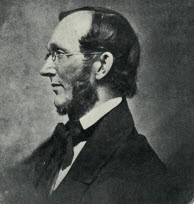
Francis Bowen was an American philosopher, writer, and educationalist.

Augustus Addison Gould was an American naturalist and the foremost conchologist of his era. He described over 1,100 new species of mollusks, including all known mollusks of Massachusetts and the shells collected by two major government exploring expeditions. He was one of the first naturalists in America to recognize the importance of geographic distribution in the description of species.

Samuel Austin Allibone was an American author, editor, and bibliographer.
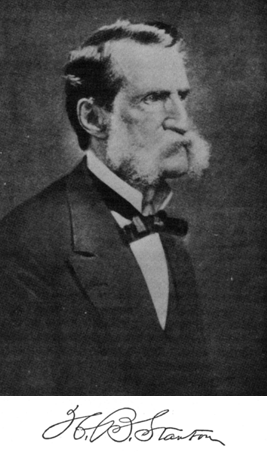
Henry Brewster Stanton was an American abolitionist, social reformer, attorney, journalist and politician. His writing was published in the New York Tribune, the New York Sun, and William Lloyd Garrison's Anti-Slavery Standard and The Liberator. He was elected to the New York State Senate in 1850 and 1851. His wife, Elizabeth Cady Stanton, was a world renowned leading figure of the early women's rights movement.
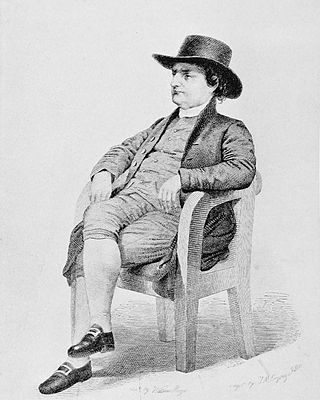
Isaac Tatem Hopper was an American abolitionist who was active in Philadelphia and New York City in the anti-slavery movement and protecting fugitive slaves and free blacks from slave kidnappers. He was also co-founder of Children's Village with 23 others.

D. Appleton & Company was an American publishing company founded by Daniel Appleton, who opened a general store which included books. He published his first book in 1831. The company's publications gradually extended over the entire field of literature. It issued the works of contemporary scientists, including those of Herbert Spencer, John Tyndall, Thomas Huxley, Charles Darwin, and others, at reasonable prices. Medical books formed a special department, and books in the Spanish language for the South America market were a specialty which the firm made its own. In belles lettres and American history, it had a strong list of names among its authors.
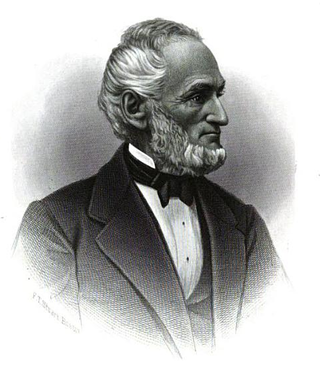
Amasa Walker was an American economist and United States Representative. He was the father of Francis Amasa Walker.

William Patton, was a pastor, abolitionist, and the son of Revolutionary War colonel and the first Postmaster of Philadelphia Robert Patton. He was the father of the abolitionist William Weston Patton.

Charles Conrad Abbott was an American archaeologist and naturalist.

William Merchant Richardson was a member of the U.S. House of Representatives from Massachusetts and chief justice of the New Hampshire Supreme Court.
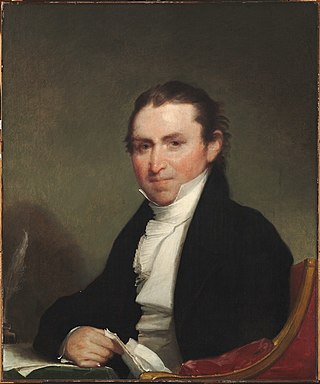
John Lowell Jr. was an American lawyer and influential member of the Federalist Party in the early days of the United States of America.

Robert Lodowick Stanton D.D. was an American Presbyterian minister, educator and college administrator. He served as president of Miami University of Ohio from 1868 to 1871. He also served as president of Oakland College in Mississippi.
Samuel Lorenzo Knapp was an American author and lawyer.

Joel Munsell was an American printer, publisher and writer.

Brigadier General James Appleton was an American abolitionist, early supporter of temperance, and politician from Maine.



















